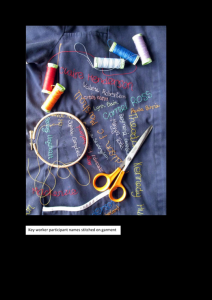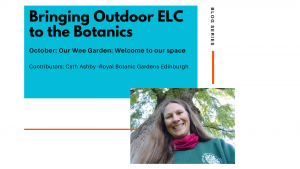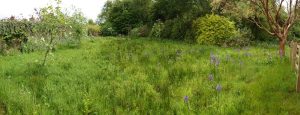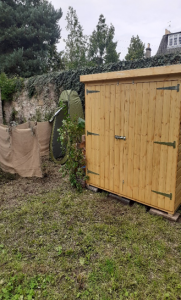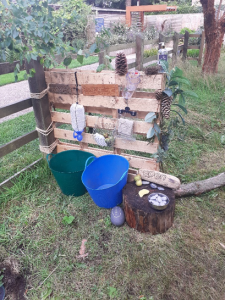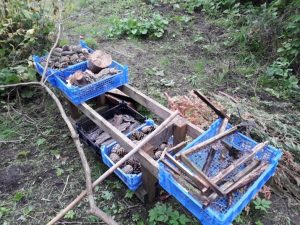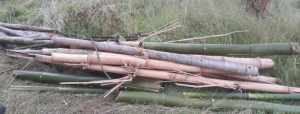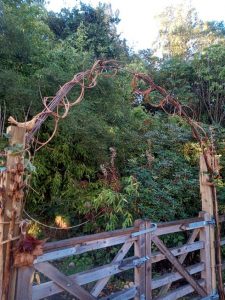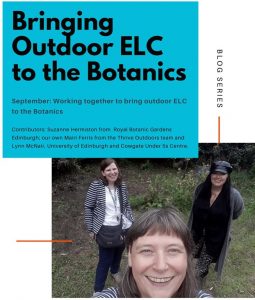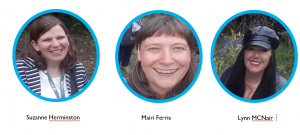Fixed-fee risk management support for charities
In conversation with charities, our Specialist Volunteer team has uncovered that risk management is a key area that charities request support with.
Often times an organisation’s risk register doesn’t solely focus on risk – also incorporating impacts (outcomes) and issues. It’s important to take a step back and really identify what risks your organisation potentially faces to become more proactive in protecting your organisation from future risk.
Inspiring Scotland has discovered a special service offered to help charities identify risk. Risk management business RSM offers fixed-fee support, designed to fully understand a charity’s activities, consider the main areas of risk and help provide you and the organisation with a cost-effective and proportionate approach to better manage your risks.
“Ask yourself, do you get that high level of assurance that the things that keep you awake are being managed effectively. Are you the reactive organisation that is blindsided first by the cause and then by the outcomes; Are you now firefighting your way through, sometimes successfully but other times unsuccessfully?”
Identifying quality opportunities for charities is part of our commitment to strengthening the sector. All third sector organisations in Scotland are welcome to reach out – your organisation does not currently need to be receiving funding from Inspiring Scotland
Find out more about this service.
Creative Communities Programme Case Studies
We are sharing a number of case studies from our charity partners projects who were or currently are part of the Creative Communities Programme. These case studies highlight the brilliant work of our charity partners and the impact these projects had on their local communities. Each project had to pivot during the COVID-19 pandemic. However it was amazing to see how each of the charity partners adapted by moving sessions online and what really shines through in all these case studies is the creativity of all involved!
Read our case study on Tullochan.
Read our case study on Create Inspire.
Read our case study on GoodTrees Neighbourhood Centre.
Read our case study on Lyth Arts Centre.
A day in the life of… Thrive Outdoors Fund Manager
Welcome to our first ever ‘Day in the Life Of’ feature, in which Thrive Outdoors Fund Manager, Melodie Crumlin, talks about her first six weeks with Inspiring Scotland
What has a typical day looked like for you?
The work itself has varied from day to day. Some days have been spent connecting with the wider sector and others, reading and researching, and other days have been spent strategising and forward planning. The best days have involved visiting grassroots play charities, seeing all the different settings in action and listening to the voices of children and play rangers/the sector. Oh, and getting involved in some play, too! We have strong communication across our Thrive Outdoors and wider Inspiring Scotland team. We start our week with a catch up which involves sharing and planning, and we meet fortnightly as a very large team sharing insights and knowledge, as well as hearing from some of our charities or sector leaders.
What do you enjoy most about working with Inspiring Scotland ?
Like a lot of people within Inspiring Scotland, I feel passionate about what our organisation stands for and I like the fact that day in, day out I am contributing to our shared goals. Inspiring Scotland supports the voluntary sector in a way that amplifies and strengthens its impact, in turn having a transformative effect on the lives of those living in Scotland who otherwise may struggle to make the best of their lives due to circumstances, poverty, or other disadvantages.
What excites you most about the work of the Thrive Outdoors team?
Everything!! I’m in a fortunate position that our team is getting to support and champion the health and well being of children and Scotland through outdoor play. We know that Outdoor Play is needed now more than ever. It really can address the impact of so many challenges in our post-Covid society by bringing children and families together to reconnect, giving them a renewed sense of their communities, building relationships, improving physical, mental health and wellbeing, and increasing the primary care giver involvement in the lives of their child(ren) and local neighbourhood.
Find out more information on the work of Thrive Outdoors here.
Charities and Volunteers join forces to improve youth employability
The third sector forms the backbone of our communities and spends the majority of its money and time delivering essential services. While this is critically important, it means organisations are often left with precious little resources to dedicate to the core business functions that enable them to streamline, scale and innovate.
Skills-based volunteering offers charities a transformative resource: external expertise that strengthens their capacity to serve their communities.
Charities within Inspiring Scotland’s Building Brighter Future Fund all work to support disadvantaged young people into employment. Specialist Volunteer lead Elaine convened a meeting asking all charities in the BBFF portfolio if they would like to participate in a charity forum discussing how Wood Mackenzie executives could assist with projects they were working on. They then began a collaboration with Senior Leaders at business management company Wood Mackenzie that would have great and lasting results.
Each charity initially had a specific issue they were looking to resolve. The Usual Place needed help professionalising a business plan proposal. FARE was at stalemate with the Council over indemnities and wanted to resolve a commercial asset acquisition problem. Aberdeen Foyer were experiencing change management issues, and Move On wanted support with injecting more commercialism into one of their business ventures.
Addressing the problem-solving needs of charities on a shoestring budget can be quite different to the normal day-to-day work of a corporate employee. Excited to do something meaningful and new, a group of senior executives at Wood Mackenzie, led by Martin Kelly and Malcolm Dickson, worked closely with the charities. Through a series of meetings with individuals at each organisation, the executives developed an understanding of each charity’s unique context and needs. This enabled them to truly understand what each organisation was trying to achieve and why.
Working directly with different stakeholders helped both sides appreciate the value of bringing together different points of view to help solve tough challenges.
Malcolm Dickson, who worked with SSF and Aberdeen Foyer, said:
“Working for these charities has been genuinely inspiring. The dedication of the teams – and the scope of what they deliver – is incredible. Feeling like I have made even a small difference to their organisations is a great feeling. As well as sharing some of my knowledge and time, I have learned a lot from the teams themselves. As well as being charities, these are serious businesses with excellent management – so the opportunities for a mutually beneficial relationship are plentiful.”
Janet Johnston, who worked with The Usual Place, said:
“Working with The Usual Place was a fantastic opportunity to understand more of the essential work they do with young people in Dumfries and Galloway. Supporting Heather and Craig to draft a new business plan was a great collaboration. The focus was on bringing the document up to date, as part of their work to attract future funding. It’s a privilege to support their work.”
Craig McEwen, CFO The Usual Place, remarked:
“All at Woodmac have been fanatically supportive of us and our mission and have left us with a working document that is so much stronger than when we first began. I can’t thank everyone involved enough. Your time and commitment to supporting our work with our young people is greatly appreciated. “
Rhodri Thomas worked with Move On, and said:
“It’s been great working with John at Move On, and in particular, exploring the intersection of the financial and operational components of the charity versus its mission to deliver such valuable services to the community. This has given a new perspective on balancing these elements and how best to communicate them in a coherent and inspiring way.”
CEO of Move On, John Hinton, commented:
“The work is ongoing, with Wood Mac continuing to support senior Move On staff to develop an Integrated Strategy Map, which will provide staff with an easy to engage with visual link between the business plan and day to day activity.”
Pro bono initiatives such as this uniquely complement corporate inclusion strategies. By cultivating partnerships, both sides are able to work together to determine values and drivers, and execute projects accordingly.
Could your third sector organisation could benefit from this type of support? Find out more about our Specialist Volunteer Network and get in touch with the team for more information.
Autism Advisory Forum- learning from those with lived experience
Inspiring Scotland supports charity partners working across a number of thematic funds. Part of our work ensuring individuals can lead full and fulfilling lives focuses on making Scotland a more accessible, inclusive and understanding place for autistic people to learn, work and live. Hearing from people with lived experience is central to this work and we spoke with Chris from the Increasing Understanding of Autism team to find out more.
‘Nothing About Us, Without Us!’ is a key message for the autistic community. It means that autistic people should have a respected and equal voice in decisions that affect them – from choices about care, to government policy and so much more. It is this message that guides the Increasing Understanding of Autism programme; our work is governed by the lived experiences of autistic people in Scotland, through the Steering Committee and the Autism Advisory Forum.
The Autism Advisory Forum is made up of over 150 autistic adults from across Scotland. We are steadily working on increasing the representation of diverse groups of autistic people within the forum too, to mirror the wider autistic community in Scotland, particularly engaging with more men, LGBTQ+ people, people of colour and people with additional support needs. The forum launched in 2019, alongside the start of the Increasing Understanding of Autism Programme, and has been developing ever since. Over the summer and July, 80 new members signed up to the Forum, doubling its size. We are really excited to be able to engage with autistic people on a much larger scale, to get a greater insight into the needs of the community & make our work more representative of autistic people’s experiences.
The Autism Advisory Forum feeds into all aspects of the Increasing Understanding of Autism Programme’s work. Prior to the pandemic, we hosted four regional Advisory Forum meetings facilitated by local autistic led organisations in Inverness, Aberdeen, Glasgow and Edinburgh. We have now combined these regional groups into one large forum, and engage with forum members through zoom meetings and surveys. We recently asked Advisory Forum members to share their opinions on projects that applied for phase 2 funding. 50 members of the forum shared their views, and we took their scores to the steering committee who agreed to fund the 10 projects that the forum members had scored the highest, enabling autistic people to have a direct say on an issue that affected them.
We have also consulted with the forum members to develop the ‘Different Minds. One Scotland’ campaign through phase one, creating a website full of autistic-led content and a highly successful advertising campaign that reflected their lived experiences. We are now working with small groups of forum members to develop the plan for phase two of the campaign, creating new mythbusting videos, written content and a brand new advert.
Accessibility is a key part of the Increasing Understanding of Autism Programme, we are aiming to make Scotland a more accessible, inclusive, and understanding place for autistic people to learn, work and live; this includes participation in the Autism Advisory Forum. We recently ran a recruitment project for the forum and worked to make it as accessible as possible, including creating easy read documents and working with a wide range of organisations to share the call for new forum members, so we could reach as many different autistic people as possible. This included the charities supported by Inspiring Scotland’s autism and learning disabilities funds, Autistic People’s Organisations and charities who support other diverse groups in Scotland. Forum members also have multiple ways to feed back into the programme, be that through surveys, forum meetings or one-to-one sessions. We are continuing to make the Forum more accessible in any way we can, and we are really looking forward to seeing how the forum grows.
The quotes below from members of the Autism Advisory Forum highlight the importance of the forum for those with lived experience:
“I am one of the autistic community involved in the selection of ideas/proposals. I thank Inspiring Scotland for the lengths they have gone to in encouraging the participation of a range of autistic individuals like me, enabling us to be heard, valued and our views acted upon (and that the forums also supported those who could not communicate within the meetings themselves).-Jeanie
“I am absolutely delighted to have been accepted onto the Autism Advisory Forum as part of the Increasing Autism Understanding programme. As an autistic woman I am excited and proud to have the opportunity to participate in the shaping of this crucial work!” – Aimee
“It’s important to feel heard and seen in representations of autism and the forum has provided that space and been a respectful and inclusive environment.” – Forum Member
Looking to the future, we hope that we can grow the Autism Advisory Forum further and create more opportunities for autistic people to be changemakers and innovators. The Forum is a key part of our work and it enables and empowers autistic people to directly make change on the issues that affect them. We look forward to continuing this programme, to build a Scotland that understands, values, and celebrates autism and other forms of neurodiversity.
About the Increasing Understanding of Autism Programme.
The Increasing Understanding of Autism Programme is a direct response to the Scottish Government’s 2017 Engagement Exercise, which emphasised the need to raise understanding of autism amongst the non-autistic population. The programme, which is managed by Inspiring Scotland on behalf of Scottish Government consists of a marketing campaign; Different Minds. One Scotland, and funded charity projects. The programme is directed by autistic people’s lived experiences and the funded charities are partners in this programme, helping to influence the direction of the national marketing campaign and promote the campaign at a local level.
Our Specialist Volunteer Network can help bridge knowledge gaps
Inspiring Scotland’s Specialist Volunteer Network is a free resource to third sector organisations, providing support wherever it is needed most. A common way to use this service is to cover gaps in an organisation’s knowledge or skills. The specialists provide valuable insights and advice from an external perspective, free of charge, ensuring organisations can access services they normally would not be able to afford. This is precisely why Speak Out Scotland reached out for support.
Speak Out Scotland (SOS) is Scotland’s only male survivors’ organisation, providing complex trauma counselling and supporting services for male survivors of childhood abuse. As part of their risk management strategy, the charity wanted to develop their own income streams and become less reliant on funding. Because many referrals came from the NHS, they knew it made sense to explore contractual arrangements where the NHS would provide financial support for therapy. But with no experience having done this before, Speak Out Scotland knew that specialist support was needed.
SOS reached out to Inspiring Scotland’s Specialist Volunteer team, who arranged a meeting with a specialist who had years’ of experience working at the NHS and other public and charitable organisations. Working together, SOS developed their approach while also gaining valuable insights, contacts and advice. For example, the specialist suggested a targeted approach by initially engaging organisations where historical childhood sexual abuse was prevalent and where there was a moral obligation to support survivors, not simply a business case for providing support. SOS are now implementing a two-pronged approach – contacting organisations where there is a moral obligation to support survivors, whilst collecting data to support future business cases for support with the NHS.
This work has also led to some exciting developments, most notably, a partnership between SOS and the Scottish Players’ Football Association, the Scottish professional footballers’ union. They share the same desire to support the survivors of historical abuse in football, while raising awareness of childhood abuse and breaking the stigma that still pervades society. With the backing of the Inspiring Scotland’s Specialist Volunteers, SOS is now moving forward with the development of educational programmes, while challenging those organisations with a moral obligation to provide much needed support for Survivors.
Speak Out Scotland would urge all charities to explore and familiarise themselves with the range of specialisms volunteering through Inspiring Scotland and to consider asking for support for their existing operations; and when engaging with new initiatives. Even charities need a helping hand now and again, and this is a key resource that can and does make a difference.
Tony Marr, Development Manager, Speak Out Scotland (SOS)
Thrive Outdoors Blog Series: ‘Our wee garden’
Blog 2
Read on as we share Blog 2 in our blog series on bringing Outdoor ELC to the Botanics in Edinburgh. This week’s blog contributor is Cath Ashby part of the learning team at the Royal Botanic Gardens Edinburgh.
Hi I am Cath Ashby and I have worked at the Botanics for 23 years first as a horticulturist and for the past 16 in the Learning Team working with schools pupils of all ages.
During this time, I have seen the challenges and pleasures of sparking wonder about plants in children who often arrive thinking that a garden is boring and instead wishing they were visiting the cuddly (or not so cuddly) animals in the Zoo. ‘Plant blindness’ is an often talked-about phenomenon in research circles and basically humans are more wired to notice moving things with faces like ourselves (our survival as a species depended on it).
But research also shows that green spaces are beneficial to our health and wellbeing, we just need to slow down enough to notice and connect! If we, as outdoor educators, manage to encourage this, the magic of plants and nature does the rest and children often leave saying being in the garden has been the best thing they’ve ever experienced.
Our Wee Space
Our outdoor nursery space started as a meadow and photos from May show a wild untouched area where native plants flourished alongside remnants of past curators’ gardens when the visitor welcome East Gate Lodge was a home. It has some mature fruit trees and also some gorgeous specimen trees like the paperbark maple (Acer griseum) and the candyfloss tree (Cercidophyllum japonicum) which is named after its heart-shaped leaves that smell of burnt sugar in autumn when they turn from bronze to yellow to orange and pink.
We chose the name ‘Our wee garden’ as it gives a sense of ownership to the children and I almost imagine the larger garden encircling and protecting and nurturing the smaller space and the growth of the children within. This space has a different feel and different rules and is theirs to really explore and love, then over time this love can hopefully spill out as they explore the garden and the natural world outside our gates.
Let’s take a look at the transformation that our education, horticulture and maintenance team have been part of.
First the shoulder high grass was strimmed and cut with a mulch mower that can cope with more uneven ground and longer grass. This was the first time we could see the bare bones of the site. It is quite enclosed and sheltered with a steep bank on the west side and a tall stone wall with climbers on the east.
After the mow we were surprised by the large number of frogs of every size – so many that we could hardly walk for fear of stepping on the tiny froglets. A black and white cat is a regular visitor from the wall shared with the houses, badgers and foxes pass through and the peaceful mornings are full of birdsong.
Key learnings
The Gardens team have learned loads about this space and what it would take to be ‘play friendly’ and we will keep on learning.
We did a survey of plants present noting any sensory plants and toxic species, such as the yew, or other health and safety issues. One common meadow plant grows on site – the native smaller hogweed (Heracleum sphondylium) which shares the properties of the non-native giant hogweed for inducing potential skin blistering and rashes when sap on the skin reacts with sunlight. We regularly scan the site to dig out the plants, but strong branching roots mean this will keep popping up.
Rushes growing meant that there would be wet areas and as time has gone on, after a very dry summer, we now find ourselves finding creative solutions to deal with boggy areas. This pilot gives us a chance to see how a new site that isn’t under tree canopy copes with lots of tiny feet through the winter in increasingly wetter weather due to climate change. The site will continue to evolve.
We have a shed and a pop-up toilet, handwashing stations and fluid activity areas that encourage independent play and exploration.
Using nature’s materials!
Whenever our arboriculture team have been cutting down diseased trees we have been given some wonderful large logs and tree rounds. Many of this team have young children and have helped us by saving treasures and imagining how their children would love to play on them and with them. Of course, they are living the dream career for children who love climbing trees!
We have giant bamboo from the glasshouses, big pebbles and have been scouring areas for anything that is being thrown out or recycled around the organisation like office inbox trays, old slide boxes, offcuts of wood and old metal buckets.
Caroline, our wonderful creative early years practitioner has eagle eyes!
She has also made some fabulous decorative items, like a weather board and a welcome archway entrance hung with willow wreathes and leaf bundles made by the children.
We really are lucky to be part of an organisation where we have access to abundant natural and other materials like pallets and old slabs. We are aiming to be as sustainable as possible repurposing and reusing items.
Sharing Spaces: What do RGBE staff think?
There has been much negotiation to get to this pilot stage with input from staff across the RBGE team. We will continue to see how things develop and to see what staff think of the idea of an outdoor nursery in a botanic garden over time.
Many staff members that have come to the site have wistfully wanted to stay and play from the most serious scientist to our own education staff. One horticulture team member recently witnessed the interaction of the children on the site and told me that
‘The kids look like they love it…all the children were engaged with the space, there was not one bored child there.”
They were all interested and had found something to do.
I asked them:
‘Do you think you would have enjoyed it as a child?’
They said:
‘Probably, I didn’t mind getting dirty and messing around outside.’
This made me reflect on whether that is a potential far-reaching impact of projects like this. Will children who see getting ‘dirty’ and being in contact with soil and mud, weather and plants as normal, be more likely to consider careers like horticulture? I certainly was that child!
Through gardening with primary children, I have observed some who are fearful of and hate getting dirty hands. Does some of this stem from never being exposed to experiences like outdoor nurseries and forest schools when younger which are relatively new approaches?
So, the site is developing into its own character – being something between a forest school space and the rest of the more cultivated garden. Just now it resembles a mud monster in places which we are tackling, but it is really special and children (and grown-ups) love it. There really are fairies at the bottom of the garden too!
Enjoy this blog? Then keep an eye for the next blog coming on Friday the 19th of November ,where both the up’s and downs of piloting a new outdoor ELC in a botanical garden will be shared as well as the key learnings along the way!
Join in the conversation, add your pictures, or just chat with us at:
- Facebook @ThriveOutdoorsScot,
- Twitter @Thrive_Outdoors
- Instagram @thrive_outdoors
- or by email to amy@inspiringscotland.org.uk
| Useful Links |
| https://www.bbc.com/future/article/20190425-plant-blindness-what-we-lose-with-nature-deficit-disorder |
Thrive Outdoors Blog Series: Bringing Outdoor ELC to the Botanics
Blog 1
This week sees the start of an exciting collaboration between the Royal Botanic Garden Edinburgh (RBGE), Inspiring Scotland’s Thrive Outdoors team, the University of Edinburgh and two Edinburgh-based Early Learning and Childcare settings; Edzell Nursery and Outdoor Nursery Edinburgh (ONE).
Over the next six months the partners will undertake research as groups of children from the nurseries experience outdoor play and learning in a unique setting.
Is it possible to have an outdoor Early Learning and Childcare setting within a botanical garden?
That is the main question that RBGE want to discover the answer to and what the parallel research, run by University of Edinburgh and Inspiring Scotland, will explore.
Each month, the Thrive Outdoors blog series will feature this project from a range of perspectives.
First up in this exciting series is a conversational blog between Suzanne Hermiston from RBGE; our own Mairi Ferris from the Thrive Outdoors team and Lynn McNair, University of Edinburgh, Cowgate Under 5s Centre and Thrive Outdoors Associate as they met onsite for the first time.
What is the inspiration and motivation for you in establishing this project at the Royal Botanic Gardens in Edinburgh?
Suzanne: “During lockdown we became increasingly aware of the importance of children playing outdoors and reconnecting with nature. This, combined with the Scottish
Government’s increased commitment to childcare provision, meant it was the perfect time to consider how the Botanics could best encourage the next generation of horticulturists and botanists. RBGE hosts the national collection and it’s essential that we secure the future of that collection by supporting the next generation in exploring it in it’s full glory. Many people already enjoy the garden as a family, but we wanted to allow children to see beyond the simple joy of being in a green space and increasing their knowledge of plants and their impact on our planet. Recent events such as flooding and forest fires internationally, have raised awareness of the challenges of biodiversity loss and the climate emergency, but it’s our responsibility at RBGE to guide children from as early as possible to help them see how their individual actions can make a positive difference.”
Mairi: “For me, the joy of this project is the collaboration and connection of all the partners, it really feels like the perfect demonstration of the National Position Statement on Outdoor Play and Learning in action!
Scotland’s National Position Statement on Outdoor Play and Learning states:
We commit to life-enhancing outdoor play and learning for all of Scotland’s children and young people by:
- Widening access to the high-quality, diverse greenspaces and natural landscapes that exist throughout all our communities to ensure that all children, young people and families have easy, local access to excellent outdoor
- Opening up more of our communal and publicly-managed spaces for playing and learning outdoors, ensuring that children and young people know they are entitled to access these spaces and feel safe and comfortable using
- Enhancing and enriching urban greenspace and built environments to be inviting, play- friendly places, offering easy access to the outdoors and nature close to home.
- Empowering every adult involved in the lives of our children and young people with the confidence, enthusiasm and skills to encourage and support them to play and learn
- Generating and sharing knowledge and evidence-based research to promote better understanding of the benefits of playing and learning
As founder signatories of the Statement, Inspiring Scotland is excited to be part of a project which is aimed at investigating ways to ensure children have access to high quality care and learning experiences within an urban greenspace, which is not traditionally thought of as a space for children’s exploration.”
Lynn: “I am really interested in being part of this project as it first of all meets with my research interests around early childhood and children in nature. Furthermore it is an exciting, innovative venture that opens up the potential for children to be horticulturalists of the future. This project is not simply exploring whether children will play in the space, as we know they will do that, it also invites us to consider the affordances and knowledge enhancement of nature.”
Why is the research element important?
Suzanne: “RBGE is a research focused organisation, with members of our Science team working globally to carry out research and vital conservation work. It seemed logical, therefore, that our consideration of the benefits of an outdoor nursery within a botanical garden should follow the same – evidence based – approach. We’re also keen to ensure that whatever we learn from the pilot is captured and shared with others, whether that be other botanical gardens considering a similar project or highlighting the value of botanical gardens to nurseries across the UK and early years practitioners. Whatever the outcome, we hope this will be a rich source of learning for so many. Working in partnership with Inspiring Scotland and the University of Edinburgh, brings all the necessary components together to ensure the work we do is supported through best practice guidelines and cutting edge pedagogical research.
Lynn: “The primacy of this research is that it will be ethnographic as the researchers intend to live alongside the children in the everyday lives as they construct and make sense of their surroundings. The children’s behaviour will be studied within the context of the RGB site. In ethnographic research, the data is gathered primarily through observation and informal dialogue with the children (and adults working with the children). As this form of research is relatively unstructured, the researchers will capture raw / fluid data which will be analysed and interpreted for meaning.”
And what of the space?
Mairi: “Initially, although very excited by the prospect of the project, I admit I was sceptical about how children could get a high quality meaningful, child-led, experience here at the Botanics. Would there be echoes of ‘No!’ and ‘You can’t go there!’ ringing round the gardens?!
The tension between providing access to children as citizens whilst protecting the precious plant collection has been carefully thought through by the Garden team and a dedicated space has been created as the children’s base.”
Suzanne: “Identifying an appropriate space within the garden for the nursery was definitely challenging. Our original plans put the children right in the heart of the garden, but by observing the children during six exploratory visits, where different groups of 5 or 6 children visited for one afternoon each, we quickly realised that this location would not provide an opportunity for the child led approach we hoped to cultivate. Sitting within the national collection didn’t allow for ‘free exploration’ without having to limit enquiring minds. Rather than the whole experience being based on what the children couldn’t do, we wanted to start by allowing them to build a relationship with the garden with fewer limitations, whilst we worked with them to help them understand the difference between an open forest space and a protected botanical garden. In this way we hope that they will soon learn to identify the difference between the two spaces, whilst equally enjoying and respecting both. The new site, was previously unused and provides a perfect space to do so. It also offers the added advantage of being close to the Garden of Tranquillity (used by dementia groups and care homes), which we hope may allow for intergenerational learning opportunities as the project progresses. The new site – now named “our wee garden” – offers the perfect mix of rugged landscape, muddy sections and beautiful mature trees which form an amazing canopy for protection from the elements (not to mention being perfect for our mini explorers to create their own dens and look for fairies!).”
Lynn: “On my way to the RBGE site I had pictured in my mind a cultured garden environment. However, the moment Suzanne introduced me to the site I was stunned by its beauty and its immense potentialities. I have always had a deep interest in the planetary ecosystem and indeed, I am, a sentimental nature lover; and the site offers opportunities for children (my greatest love) to explore and be in nature. The space is magical, with mature trees, where children will, I have no doubt, explore the nooks and imaginative spaces; there are mud piles, where children can delve into this rich natural resource…there are quiet spaces, for contemplative thought. In the background alongside the birds and insects you can hear the trickle of water…in truth, after a very busy day, I did not want to leave this beautiful space…I am extremely excited to begin our research in order to discover how the children make meaning of this magical space.”
Stay tuned as we continue this blog series sharing the next part of this exciting journey on Friday the 15th of October!
Enjoy this blog? Then keep an eye for the next blog in this series where both the up’s and downs of piloting a new outdoor ELC in a botanical garden will be shared as well as the key learnings along the way!
Join in the conversation, add your pictures, or just chat with us at:
- Facebook @ThriveOutdoorsScot
- Twitter @Thrive_Outdoors
- Instagram @thrive_outdoors
- or by email to amy@inspiringscotland.org.uk
| Useful Links |
|
Creating resilient and sustainable islands
People living in Scotland’s island-based communities will benefit from new funding for projects designed to support employment, community resilience and health and wellbeing.
Through the £2 million Island Communities Fund, 29 successful community groups and businesses across 23 islands have been awarded grants of up to £150,000 each. Projects focus on developing sustainable economic activities on islands with the majority of projects having a net zero theme, while also supporting the delivery of the Scottish Government’s National Islands Plan (2019).
Projects include the installation of a range of spinning mills to allow full processing of fleece into yarn on Foula, which will use electricity from Foula’s off grid renewable network, as well as a project to expand a community garden on Lewis to improve mental health opportunities and reduce social isolation.
Islands Secretary Mairi Gougeon said:
“With just a few weeks until the eyes of the world are on Scotland for COP26, it’s great to see more projects designed to address the growing climate crisis. There is so much potential across our islands and we received many innovative and creative applications. It’s clear to me that our island communities are going to play an important role in helping us meet our ambitious climate change targets and I am excited about that.
“The projects that have been awarded funding will contribute to our ambition to make Scotland greener and fairer. They will help us achieve a just transition to net zero and climate resilient living on our islands. I’m looking forward to seeing work get underway to help people, businesses and communities on our islands thrive.”
Inspiring Scotland CEO Celia Tennant said:
“Inspiring Scotland is delighted to be the delivery partner for the Scottish Government’s Island Communities Fund which supports the aims and outcomes of the National Islands Plan. The successful funded organisations will make a vital contribution to the economic, environmental and social wellbeing of our island communities and we are looking forward to working alongside them to deliver their projects.”
Background
The Fund is managed by Inspiring Scotland on behalf of the Scottish Government. It is backed by £2 million of Scottish Government funding, which comes from the £9.5 million committed to the Islands Programme for 2021/22.
Projects should be completed by 31 March 2022.
Find out more on the successful projects: Island Communities Fund
Read: The National Plan for Scotland’s Islands
Perinatal and Infant Mental Health Third Sector Funding Announced
18 third sector organisations from across Scotland have been awarded funding from the Scottish Government’s Perinatal and Infant Mental Health Small Grants Fund. These organisations provide vital support for new and expectant parents, carers and families at a crucial stage of life.
Building on a recent consultation, the fund supports small to medium sized organisations that provide community-based peer, parenting and counselling support to parents and carers. Organisations also support the mental health of infants by helping parents and carers to establish and maintain warm and attuned relationships with their babies, including families that face a range of challenges and barriers. A full list of funded organisations is included below.
To support the announcement of successful applicants to the fund, Kevin Stewart MSP, Minister for Mental Wellbeing and Social Care, is meeting one of the funded organisations, LATNEM (Let’s All Talk North East Mums) to discuss the importance of their work and the strengths and challenges of delivering community-based perinatal support.
LATNEM aims to promote and protect the mental health of women, birthing people and their families by providing a free, comprehensive peer support service in a safe, judgement-free space that supports their mental health when they need it. The organisation offers Scotland-wide online peer support groups, face-to-face peer support groups in Aberdeenshire and in Moray, resources, signposting and a private online group for LATNEM Members.
Today’s announcement is in conjunction with the publication of the Perinatal and Infant Mental Health Programme Delivery Plan for 2021-2022. The Delivery Plan sets out the areas of focus under this year’s theme ‘Delivering In Partnership’ as part of Scottish Government and the PIMH Programme Board’s commitment to Perinatal and Infant Mental Health services in Scotland.
Minister for Mental Wellbeing and Social Care, Kevin Stewart MSP, said:
“My heartfelt congratulations go to the key grass-roots groups who were successful in receiving the funding for what they do every single day to care for and offer the right kind of support to those who need it, at the right time.
I am pleased to launch this year’s delivery plan that is another step forward to achieving our goal of developing and sustaining perinatal and infant mental health services in the most challenging times.
With continued collaborative working, we can offer invaluable support for perinatal and infant mental health services across Scotland, to provide not only the best start in life for infants, but also to provide a lifeline to parents, carers and families when they may need it most.”
Inspiring Scotland is managing the Perinatal and Infant Mental Health fund on behalf of Scottish Government. The Small Grants Fund is offered in addition to a Main Grants Fund that currently supports 16 third sector organisations across Scotland from October 2020 to April 2023.”
Celia Tennant, CEO, Inspiring Scotland said:
“We know that the most important developments – physical, cognitive and emotional – have their foundations set very early in life, specifically in pregnancy and the first few years. We also know that for new parents, while the first few years can be the most joyous, they can also be the most challenging, with perinatal mental ill health affecting up to 20% of new mums and 10% of new dads.
We are delighted to be working with Scottish Government and the Perinatal and Infant Mental Health Programme Board to deliver this fund. These community-based organisations have been a lifeline to families throughout lockdown, providing critical support to families at this crucial stage of life. We look forward to working with them all over the next 18 months.”
For more information on the fund or any of the funded organisations, please contact Inspiring Scotland at enquiries@inspiringscotland.org.uk.
View the 2021 – 2022 Perinatal and Infant Mental Health Programme Delivery Plan.
Successful Organisations – Perinatal and Infant Mental Health Small Grants Funding:
| 3D Drumchapel |
| Dads Rock |
| Fathers Network Scotland |
| Held In Our Hearts |
| Home-Start Aberdeen |
| Home-Start Dundee |
| Home-Start East Lothian |
| Home-Start Glasgow South |
| Home-Start Levenmouth |
| Home-Start Renfrewshire and Inverclyde |
| Let’s All Talk North East Mums (LATNEM) |
| Mellow Parenting |
| MindMosaic Counselling and Therapy |
| Multi-Cultural Family Base |
| Nurture the Borders |
| Pregnancy Counselling and Care (Scotland) |
| Starcatchers Productions Ltd |
| With Kids |

